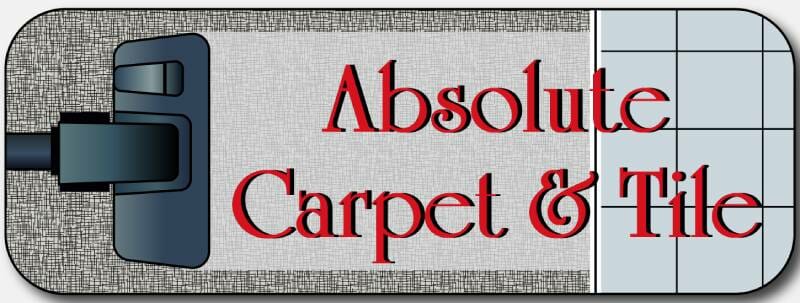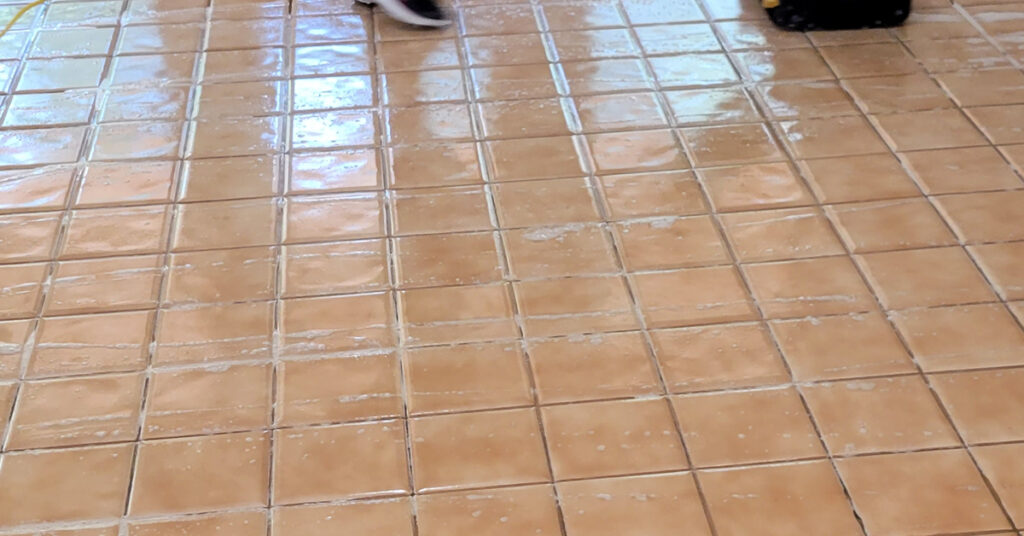If you’re a homeowner in Austin looking for flooring that’s better for your home and the environment, this guide is for you. Eco-friendly flooring materials reduce harmful emissions, limit waste, and create a healthier space for your family. Many of these products also last longer, require less maintenance, and add value to your home.
At Absolute Carpet & Tile, we’ve seen what holds up—and what doesn’t—under real-world wear. We’ve been cleaning homes in Central Texas since 2009, and we’ve learned which flooring options deliver the best results long-term, especially for families trying to live a little greener.
Why Eco-Friendly Flooring Is a Smart Choice in Austin
Austin has always been a city that values sustainability. Choosing green flooring helps reduce air pollution, energy use, and landfill waste. Many options are also safer for kids and pets because they contain fewer harsh chemicals.
We recommend flooring that is:
- Made from renewable or recycled materials
- Low in VOCs (volatile organic compounds)
- Durable enough to avoid frequent replacement
- Available from local or regional suppliers
Top Eco-Friendly Flooring Options
Bamboo
Bamboo is a fast-growing grass that reaches maturity in five to six years. This makes it a strong renewable material. Bamboo flooring looks similar to hardwood and works well in most rooms.
Pros:
- Sustainable and biodegradable
- Hard and scratch-resistant
- Easy to clean with dry mops or low-moisture tools
Cons:
- Most bamboo is imported, increasing its carbon footprint
- Some cheaper versions may contain formaldehyde adhesives
Cork
Cork comes from the bark of cork oak trees. The bark grows back, so the tree doesn’t get cut down. This makes cork a renewable, low-waste option.
Pros:
- Cushioned feel underfoot
- Naturally mold- and pest-resistant
- Ideal for kitchens, playrooms, and home gyms
Cons:
- Softer than other floors, so it may dent
- Needs sealing to prevent water damage
Reclaimed Wood
Reclaimed wood is sourced from old buildings and repurposed for new homes. It keeps usable material out of landfills and has unique character.
Pros:
- Reuses existing materials
- Durable and long-lasting
- Adds rustic charm
Cons:
- Can be expensive
- Must be treated properly to remove pests and moisture
FSC-Certified Hardwood
Hardwood can be eco-friendly if it’s harvested responsibly. Look for certifications like FSC (Forest Stewardship Council), SFI, or PEFC to confirm sustainable sourcing.
Pros:
- Timeless appearance
- Long service life
- Can be refinished instead of replaced
Cons:
- More expensive upfront
- Must use low-VOC adhesives and finishes to stay green
Natural Stone and Porcelain Tile
Stone and porcelain are made from natural minerals. These options are extremely durable and often sourced locally.
Pros:
- Resistant to water and scratches
- Lasts decades with minimal maintenance
- Suitable for kitchens, bathrooms, and patios
Cons:
- Feels cold underfoot without rugs
- Heavier to install, especially on upper floors
Concrete
Concrete floors are strong, low-maintenance, and can be polished for a sleek look. They’re a great fit for modern homes or converted spaces.
Pros:
- Lasts a lifetime
- Easy to clean and sanitize
- Can be tinted or stained for custom finishes
Cons:
- Hard surface—less comfortable to stand on
- High energy use during production
Engineered Wood
This flooring has a thin hardwood surface over a core of plywood or recycled materials. It uses less hardwood than solid planks and is more stable in Texas’s humidity.
Pros:
- Real wood appearance
- Less waste
- Compatible with underfloor heating
Cons:
- Can’t be sanded as many times as solid wood
- Must check for low-VOC glue
Recycled Carpet and Natural Fiber Rugs
Carpets made from recycled plastic bottles or nylon are growing in popularity. Natural options like wool, jute, and sisal are also eco-conscious.
Pros:
- Soft and quiet underfoot
- Natural fibers are biodegradable
- Recycled carpet options reduce landfill waste
Cons:
- Carpet traps dirt and allergens if not cleaned often
- Natural fibers are more prone to staining
Linoleum and Laminate
Many homeowners confuse these two. Linoleum is made from natural materials like linseed oil and cork dust. Laminate uses a pressed wood core with a printed top layer.
Pros (Linoleum):
- Made from biodegradable ingredients
- Water-resistant and fire-retardant
- Safe for allergy-sensitive households
Pros (Modern Laminate):
- More sustainable than older versions
- Some brands offer recyclable cores and low-VOC adhesives
Cons:
- Older laminate may still use formaldehyde
- Linoleum can fade with UV exposure
Certifications to Look For
When shopping for eco-friendly flooring, check for these certifications:
- FSC: Verifies wood from responsibly managed forests
- FloorScore: Certifies low-VOC emissions
- GreenGuard: Ensures indoor air quality safety
- Green Label Plus: Used for carpet, cushions, and adhesives
- Cradle to Cradle: Ensures product life-cycle sustainability
Choose Local Suppliers in Austin
Working with local flooring stores and installers reduces transportation emissions. Many Austin-area suppliers stock regional products or offer reclaimed and recycled options. Always ask about VOC ratings, sourcing, and whether a product is recyclable at the end of its life.
How to Clean and Maintain Eco-Friendly Floors
Use Low-VOC Cleaners
Choose plant-based or vinegar-based cleaners. Avoid ammonia, bleach, or products labeled only with “fragrance.” These often include chemicals that harm indoor air quality.
Use the Right Tools
- Microfiber mops
- Washable dust cloths
- Soft-bristled brushes for tile or grout
At Absolute Carpet & Tile, we offer organic carpet and tile cleaning with low-moisture systems that are safe for every flooring type listed here.
Tips to Maximize Lifespan
- Use entry rugs to reduce dirt and grit
- Maintain humidity levels to prevent warping
- Add felt pads to furniture
- Recoat or seal floors as needed to protect the surface
When to Call a Professional
Certain issues need more than a store-bought fix. Call a cleaning expert if:
- Your cork or wood floor has water damage
- You have heavy stains on wool or recycled carpet
- Grout lines have darkened or started crumbling
- Your natural stone or tile has lost its shine
We’ve been serving Austin homes for over 15 years. We know which floors respond well to deep cleaning—and which ones need gentle care.
Build a Greener Home One Step at a Time
Eco-friendly flooring can help you build a cleaner, safer, and more efficient home. Whether you’re looking for comfort, durability, or visual appeal, there’s a sustainable option that fits your lifestyle. Ask the right questions, check for certifications, and keep your floors clean with safe, effective products.
If you ever need advice on care or want a professional deep clean, Absolute Carpet & Tile is just a call away. We’re local, experienced, and here to help.


